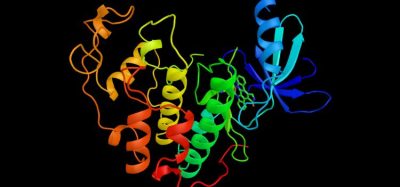The FDA requires changes to NSAID labelling
Posted: 19 October 2020 | Hannah Balfour (European Pharmaceutical Review) | No comments yet
The FDA is requiring that the prescribing information for nonsteroidal anti-inflammatory drugs (NSAIDs) include warnings about potential foetal kidney problems if taken by women over 20 weeks pregnant.


The US Food and Drug Administration (FDA) has announced in a Drug Safety Communication that it is requiring labelling changes for nonsteroidal anti-inflammatory drugs (NSAIDs).
Included in the changes is new labelling to explain that if women take the medications at or after 20 weeks in their pregnancy, NSAIDs can cause rare but serious kidney problems in the unborn baby, which can lead to low levels of amniotic fluid and potential complications.
NSAIDs such as ibuprofen, naproxen, diclofenac and celecoxib have been taken for decades to treat pain and fever. These drugs, which block the production of pro-inflammatory chemicals in the body, are available as both prescription and over-the-counter medications. According to the FDA announcement, while Aspirin is an NSAID, the labelling recommendations do not apply to the use of low-dose aspirin (81mg), because it may be an important treatment for some pregnant women and should be taken under the direction of a health care professional.
“It is important that women understand the benefits and risks of the medications they may take over the course of their pregnancy,” said Dr Patrizia Cavazzoni, acting director of FDA’s Center for Drug Evaluation and Research. “To this end, the agency is using its regulatory authority to inform women and their health care providers about the risks if NSAIDs are used after around 20 weeks of pregnancy and beyond.”
The warning follows the FDA’s review of the medical literature and cases reported to the agency about low amniotic fluid levels (oligohydramnios) or kidney problems in unborn babies associated with NSAID use during pregnancy. According to the agency, after about 20 weeks of pregnancy the unborn baby’s kidneys begin producing most of the amniotic fluid, so foetal kidney problems can cause low levels of this fluid. Low levels of amniotic fluid may be detected after taking the medicine for days or weeks but can sometimes be detected as soon as two days after initiation of regular NSAID use. This condition usually goes away if the pregnant woman stops taking the NSAID.
For prescription NSAIDs, the required changes to the prescribing information will describe the risk of foetal kidney problems and recommend that NSAID use be limited between about 20 weeks to 30 weeks of pregnancy. Warnings to avoid taking NSAIDs after 30 weeks of pregnancy are already included because they can cause heart issues in the unborn baby. The agency’s announcement stated that if a health care provider believes NSAID use is necessary between about 20 and 30 weeks of pregnancy, use should be limited to the lowest effective dose and shortest duration possible. The manufacturers of OTC NSAIDs intended for adult use will also make similar updates to the Drug Facts labels.
Related topics
Drug Safety, Labelling, Regulation & Legislation, Therapeutics









